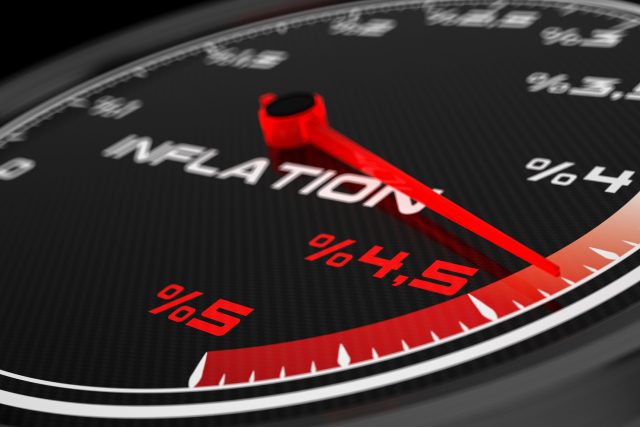This website uses cookies so that we can provide you with the best user experience possible. Cookie information is stored in your browser and performs functions such as recognising you when you return to our website and helping our team to understand which sections of the website you find most interesting and useful.
Latest inflation figures show drinks prices still rising
The latest inflation figures reveal the drinks trade continues to contribute to inflation with both non-alcoholic beverages and alcohol playing a role.

Although the consumer price index (CPI) has remained high at 8.7%, prices for non-alcoholic beverages rose in May 2023, but by less than in May 2022, as alcohol prices continued their recent volatility.
The data from the Office for National Statistics (ONS) revealed that both food and non-alcoholic beverages, which are shown together, grew by almost a fifth in the year to May, although the price has fallen slightly in the past few months.
Food and non-alcoholic beverage prices rose by 18.4% in the year to May 2023, down from 19.1% in April and from 19.2% in March, which was the highest annual rate seen for over 45 years, the ONS said.
The latest easing in the annual rate reflects a monthly rise of 0.9% between April and May 2023, compared with a larger 1.5% increase between the same two months a year ago.
Alcohol and tobacco also continued to rise rapidly with 12-month rates rising by 9.1% in April and 9.2% in May with monthly rates rising from 0.4 to 0.6% between May 2022 and May 2023.
UK Hospitality’s Kate Nicholls highlighted how inflation was still “stubbonly high” with the cost of doing business was being passed on in price within the live events sector, and called for “sky high energy costs” to be tackled.
Inflation remai s stubbornly high – driven again by cist of doing business being passed on in price, this time live events. Food price inflation softened for 2nd consecutive month. Measures to tackle sky high energy costs would bring thus down more rapidly https://t.co/t1YqPt87lr
— Kate Nicholls OBE (@UKHospKate) June 21, 2023
£10 pints
The news follows concern about the price of beer, with owner of JD Wetherspoons, Tim Martin, warning drinkers that £8 pints and even £10 pints could become normal, although he said that he would try to keep prices down in his own pubs. In March, he warned that the pub chain was battling “ferocious” inflationary pressures, as part of his Chairman’s Statement.
It comes as breweries, distillers and wineries have faced an unprecedented storm of price of production increases from energy, raw materials and logistics. The founder of the recently saved Brick Brewery, Ian Stewart, warned that more brewers and pubs would go to the wall without additional support or a change in market conditions.
He went on to explain how the Ukrainian conflict “hot on the heels of Covid” had further exacerbated an “already perfect storm” within the hospitality sector and that it “may not recover to pre-covid levels for decades”.
Stewart said: “I’m sorry to say that, unless the market improves significantly or further support is made available, many more pubs and breweries will fail.”
But in more positive news, the latest Coffer CGA Business Tracker showed like-for-like sales increased by 5.6% in May for the on-trade, which was boosted by a succession of Bank Holidays including an extended weekend for the King’s Coronation. Pubs also benefited from widespread warm weather, and their like-for-like sales were 8.8% ahead of last May. Trading at restaurants was more muted, with sales up by 2.7% and bars continued to struggle, dropping 6.6%.
Drinkflation
The latest set of CPI figures also follow the news that some brewers are ‘watering down’ their core brands in order to reduce their tax burden and keep prices the same for the consumer.
It was discovered that various beers including Heineken’s brand Foster’s, Greene King’s Old Speckled Hen, and Shepherd Neame’s Bishop Finger and Spitfire, have all seen reductions in their ABV recently, in order to save on the cost of alcohol duty, and subsequently offset the cost of rising prices of production.
The study found Foster’s had reduced from 4 to 3.7% ABV, saving 3p per bottle on duty, Old Speckled Hen had reduced from 5 to 4.8%, saving 2p, Bishops Finger from 5.4% to 5.2%, saving 2p, and Spitfire was reduced from 4.5% to 4.2%, saving 3p per bottle.
Research fellow at the University of Sheffield, Colin Angus, said if every brewery cut alcohol by just 0.3%, they would collectively save around £250 million on duty payments to the Government.
Related news
Thousands of hospitality businesses 'put on ice' by Scottish Budget

